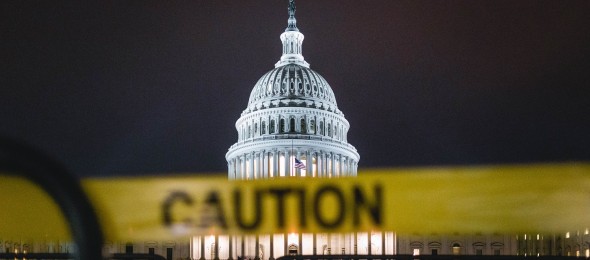On February 28th, Georgia Representative Hank Johnson and Connecticut Senator Richard Blumenthal introduced legislation that would prohibit pre-dispute mandatory arbitration clauses in employment, consumer, antitrust, and civil rights cases, but allow parties to agree to arbitration in the event a dispute arises. House Bill 1423, dubbed the ‘‘Forced Arbitration In justice Repeal Act’’ or ‘‘FAIR Act,’ would also bar pre-dispute collective action waivers in the employment, consumer, antitrust, and civil rights context. If enacted, the so-called FAIR Act would “apply with respect to any dispute or claim that arises or accrues on or after” the law takes effect.
A press release issued by Representative Johnson states:
“Forced arbitration agreements undermine our indelible Constitutional right to trial by jury, benefiting powerful businesses at the expense of American consumers and workers,” said Rep. Johnson, chair of the Judiciary Subcommittee on Court, Intellectual Property and the Internet. “Americans with few choices in the marketplace may unknowingly cede their rights when they enter contracts to buy a home or a cell phone, place a loved one in a nursing home, or start a new job. We must fight to defend our rights and re-empower consumers.”
“There is a lot of use of the phrase ‘rigged system’ these days,” Sen. Blumenthal said. “One of the systems that is truly rigged against consumers, workers, and the American people is our current system of forced arbitration. Forced arbitration is unfair, unjust, and un-American. One of the fundamental principles of our American democracy is that everyone gets their day in court. Forced arbitration deprives Americans of that basic right. This kind of injustice has to end. The Forced Arbitration Injustice Repeal Act is a measure whose time has come.”
According to Representative Johnson’s press release, the House bill has 147 co-sponsors and companion legislation proposed in the Senate has 34 co-sponsors.
On the same day, Ohio Senator Sherrod Brown introduced a “bill to amend the Consumer Financial Protection Act of 2010 with respect to arbitration.” The proposed “Arbitration Fairness for Consumers Act” would prohibit banking and other financial institutions from requiring consumers to enter into pre-dispute mandatory arbitration and class action waivers. The proposed legislation would also delegate the question of arbitrability under the law to the courts.
Senate Bill 630 clearly attempts to revive a Consumer Financial Protection Bureau Rule (“CFPB”) that was narrowly rescinded in October 2017 using the Congressional Review Act. Senator Sherrod’s press release regarding the proposed law states:
In 2017, Vice President Pence came to the Senate in the dead of night and cast a tie-breaking vote to strip working families of their right to join together and hold bad actors like Wells Fargo and Equifax accountable. The Arbitration Fairness for Consumers Act would reverse that decision and prohibit financial companies from forcing consumers to give up their right to a day in court or their right to join a class action suit to seek relief. It would also ensure that financial crimes like the Wells Fargo fake account scandal cannot be hidden from the public in a private and opaque process.
More information about the rescinded CFPB rule is available in a prior Disputing blog post.
At this time, both proposed laws are expected to face tough opposition from the Republican-controlled Senate and White House.
Photo by: Andy Feliciotti on Unsplash














